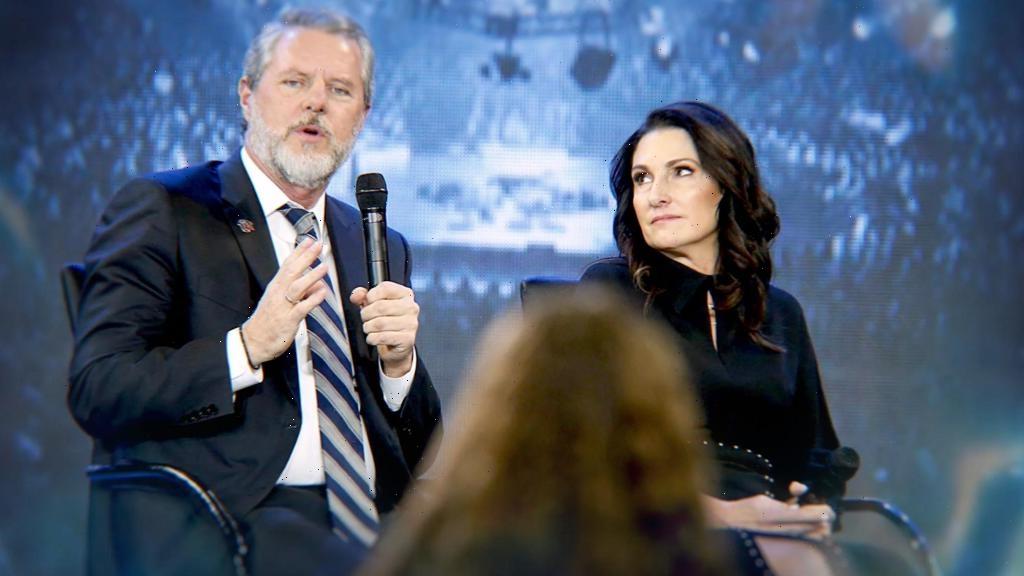When Miami-based documentary director Billy Corben and his producing partner Alfred Spellman received a June 2020 email with a subject line invoking Giancarlo Granda, Jerry Falwell Jr. and Donald Trump, they knew they had the next film for their Rakontur nonfiction banner.
Granda, a local pool boy who began having an affair with Falwell’s wife Becki in 2012, had sent the email. After telling his story to Reuters, Granda was ready to go on camera about his past relations with the evangelical couple. The result is the new Hulu documentary feature “God Forbid: The Sex Scandal That Brought Down a Dynasty,” released Nov. 1. In the doc, Granda claims that Falwell Jr., a staunch supporter of Donald Trump, was aware of and involved in the relationship he was having with Becki Falwell. After the Reuters article was published in 2020, Falwell Jr, stepped down as president of the evangelical college Liberty University in Lynchburg, Va.
While Corben details Granda’s sordid affair with the Falwells, “God Forbid” isn’t just a film about a sex scandal. It’s also a doc about evangelicals’ influence over U.S. politics and the rise of Christian nationalism.
The doc marks the second collaboration between Rakontur and Adam McKay and Todd Schulman’s Hyperobject Industries following 2020’s “537 Votes” on HBO. On its own, Rakontur has produced some of the most popular feature documentaries of the last 20 years, including the “Cocaine Cowboys” franchise and ESPN 30 for 30’s “The U.”
Corben and Spellman spoke to Variety about using a sex scandal as a way into a larger political story.
Why did you want to tell the story of Granda and his relationship with Falwells?
Corben: At first, we were fascinated by the hypocrisy of the story. We were also amused by the “only in Miami” elements of the story. But we also knew that we were dealing with a story about evangelicals Jerry Falwell Jr. and, and of course, his father before him, who had an outsize influence in presidential elections. Then Jan. 6 happened, and we thought that Giancarlo providing eyes into that subculture became that much more important and profound. The stakes got much higher in what could have been this little “pool boy story.”
Was Granda paid to be part of this documentary?
Spellman: No. We do not pay interview subjects.
Is it accurate to say that you use a sex scandal to tell a story about our current political climate?
Corben: The film’s executive producer, Todd Schulman, calls our projects Trojan horse documentaries. Or docs that tempt the audience with candy and then slip in some broccoli, perhaps when audiences are not expecting it. So, I think people will tune in, and I don’t think they’ll be disappointed in terms of the details relating to the alleged affair, but they will get more than perhaps they had expected or bargained for.
Adam McKay and Todd Schulman executive produced “God Forbid.” How involved were they in the project?
Corben: Adam and Todd watch all of the rough cuts and note all of the rough cuts. They are very involved collaborators. As evidenced by Adam’s movies and his music selections, we are very much connected in terms of tone and aesthetic, and he gets what we’re going for, and comes to the table with ideas. When he gives notes it’s like getting notes on your novel from Hemingway.
Docuseries are all the rage these days. It seems like you could have easily split this story into two or three parts. Why did you decide against it?
Spellman: We thought about it originally. We actually had it laid out as one. But I think one of the things that is challenging when you have a big idea, or you’re trying to present a bigger conclusion or land some bigger thought at the end, it’s much trickier to do in a mini-series because, in Episode 4, it’s like, “Oh, remember that thing that happened Episode 1?” So, sometimes when considering what the best format is for a project, you have to think about, ‘Are we trying to say something bigger here?’ And sometimes that’s easier to do in a feature.
The film’s soundtrack includes Moby’s “Natural Blues” and “The Who’s “Won’t Get Fooled Again.” How big was your budget?
Corben: We obviously had a healthy budget for this doc. But without getting specifics, I will just say that we for years have referred to our niche in the doc world as pop docs. We make pop culture documentaries, so luckily, with the explosion of the streaming age for premium documentaries, we have been able to make that a little bit more muscular. Music has always played a very important role in our storytelling, and we’ve been very lucky lately to be able to afford to license music.
You have been in the business of documentary filmmaking for over two decades. What made you want to stay in Miami and not relocate to New York or Los Angeles?
Spellman: After our first film premiered at Sundance in 2001, agents and managers were asking if we were going to New York or L.A. And we said, ‘We want to go back to Miami and tell stories from our hometown the way that Spike Lee tells New York stories, or Barry Levinson tells Baltimore stories. There were these really lush, beautiful Miami movies that defined the ’90s South Beach era here, but nobody was telling non-fiction stories. And Florida has always been a sunny place for shady people, so it generates nonstop story ideas for us.
Read More About:
Source: Read Full Article
